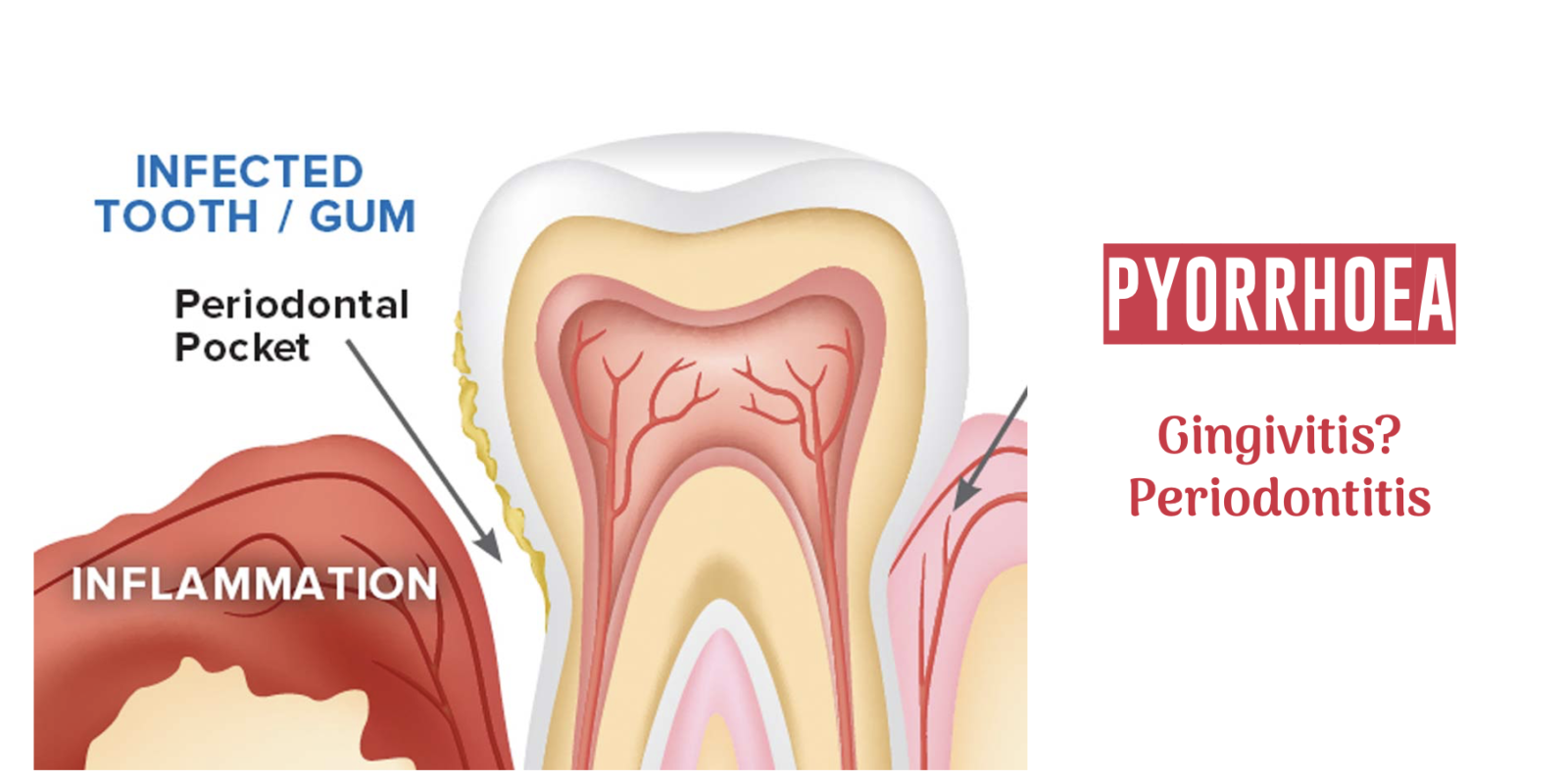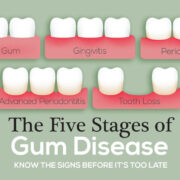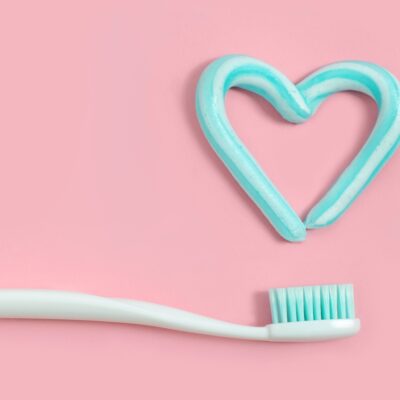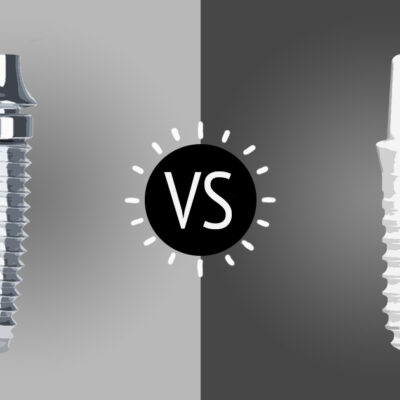When you hear the word “dentist”, what comes to mind? Perhaps images of scary dental instruments, unending checkup procedures, or even cringe-worthy moments when the dentist pulled out some sort of pliers to scrape off tartar. If these are the only things that come up in your head every time you hear the word “dentist”, then you probably are not aware of a disease called pyorrhoea gum disease. This article aims to highlight some of symptoms and causes of pyorrhea due to oral hygiene.
What is Pyorrhoea or Gum Disease?
Pyorrhoea stands for periodontal disease, a chronic bacterial infection that can affect your gums and the bones that support your teeth. It is also known as periodontitis, which refers to a gum disease that can lead to tooth loss.
Gum disease has two stages: gingivitis (inflammation) and periodontitis (advanced disease that damages the bone supporting the teeth).
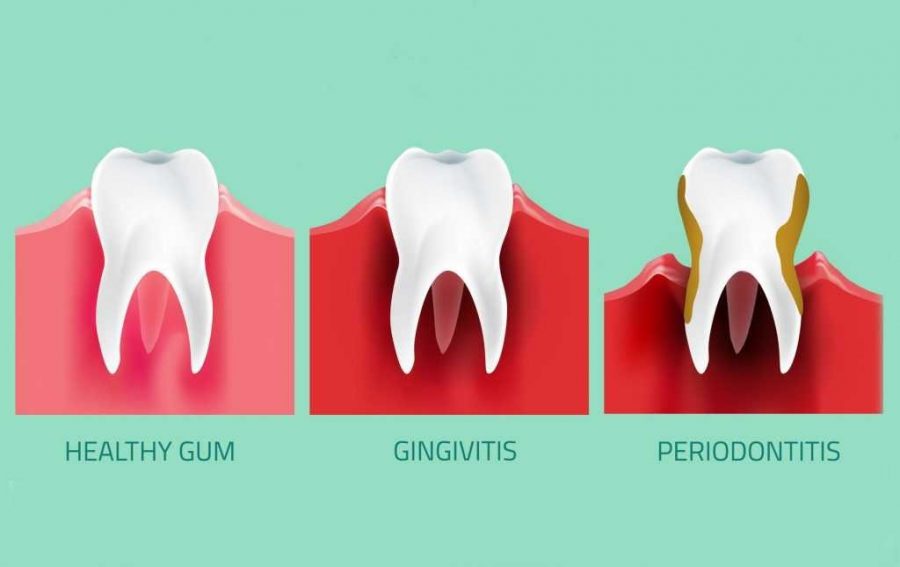
The most common symptom of pyorrhoea is gum swelling. This is followed by bleeding when brushing your teeth, bad breath, and loose teeth. Prolonged pyorrhoea disease can lead to tooth loss or even joint pain. Gum disease can be very painful and serious. It can lead to tooth loss. It is caused by bacteria that spread between your teeth and gums. Poor oral hygiene and genetics also increase your risk of pyorrhoea.
What are the symptoms of pyorrhoea gum disease?
Another way to diagnose pyorrhoea is by taking a look at the gums. If they are red, swollen, and bleeding, then there is a possibility of this gum disease. However, this is not necessarily true for all people suffering from this condition.
Swollen gums: when there is inflammation in the gums, they become swollen. The first sign of pyorrhea is swelling of the gums around your teeth.
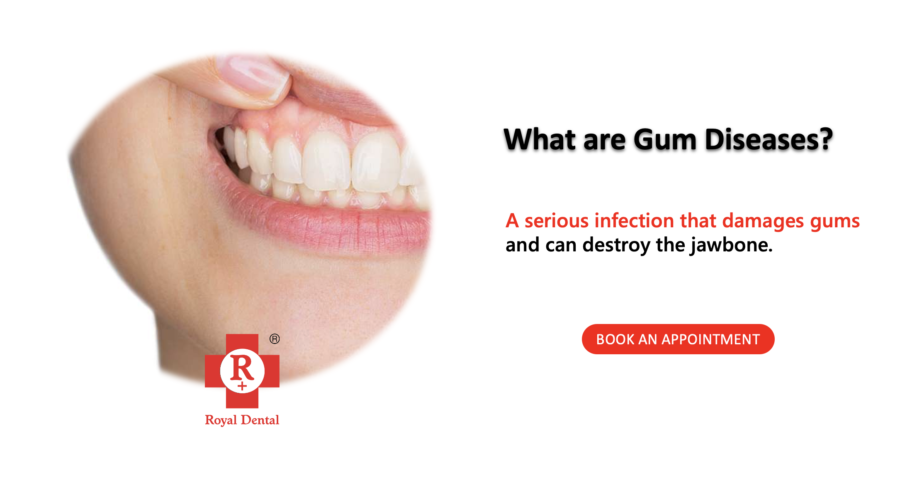
Bad breath: the bacteria that are responsible for this gum disease also cause bad breath. So, if you are suffering from pyorrhoea, you will notice a bad smell in your mouth.
Loose teeth: this is a serious condition. If it goes untreated, it can lead to tooth loss and even joint pain.
Tooth sensitivity: this is another common pyorrhea symptom. If you have pyorrhoea, your teeth will be sensitive to hot and cold temperatures.
Toothache: pain in the teeth can be a symptom of gum disease.
What causes pyorrhoea gum disease?
Bad oral hygiene is the most common cause of pyorrhea gum disease. When you don’t brush your teeth regularly, plaque and bacteria form on your teeth and gums. This bacteria can irritate the gums, and they may swell.
If you have diabetes or you smoke, then you are at a higher risk of developing pyorrhoea gum disease. Genetics can also cause this gum disease.
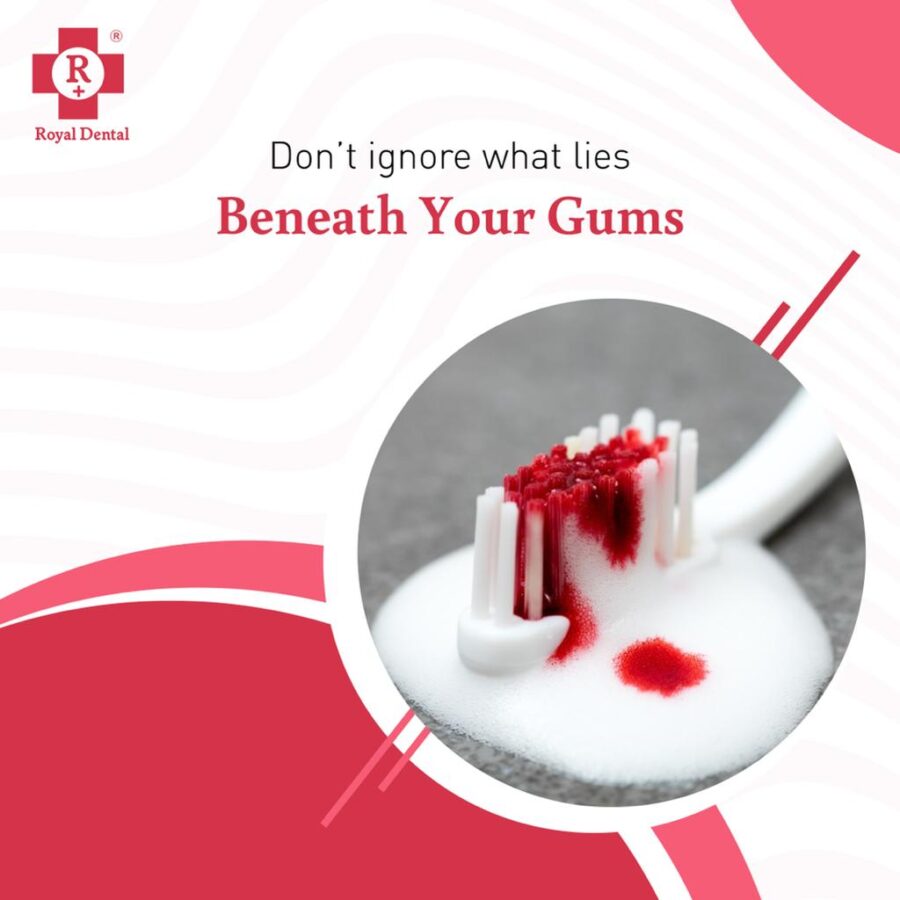
If your family members have ever had pyorrhea, you will be more likely to get it as well. Another cause of pyorrhoea gingival disease is stress.
In some cases, the body reacts to stress by increasing your blood pressure and heart rate, which can increase the risk of gum disease. Certain medications, such as steroids and anti-anxiety drugs, can also increase your risk of developing pyorrhea.
How to prevent pyorrhoea disease?
The best way to protect yourself from pyorrhea is to maintain good oral hygiene. This includes brushing your teeth twice a day, flossing once a day, and using mouthwash. You can also visit the dentist for a regular checkup and cleaning. These will help you identify any signs of pyorrhea early and treat it before it becomes serious.
If you are at a higher risk of developing pyorrhoea, such as people with diabetes or those who smoke, you may need to visit the dentist more often. You should also make sure to avoid stress where possible. Reducing your stress levels can help you avoid other health issues, too. Here are some other ways to prevent pyorrhea disease:
Eat a healthy diet: foods that are rich in vitamin C, such as citrus fruits and peppers, can protect you from gum disease.
Stay hydrated: dehydration can increase your risk of gingival issues.
Brush your teeth twice a day with a soft brush: this will help you remove plaque.
Visit the dentist for a checkup and cleaning: this will help you identify any signs of pyorrhea early.
Final Words
There are many diseases that can affect your oral health. It is important to keep your mouth clean and healthy to prevent these diseases. Brushing your teeth at least twice a day is a great way to prevent gum disease. It is also important to visit the dentist for a checkup and cleaning every six months.
Follow Us For More Updates
